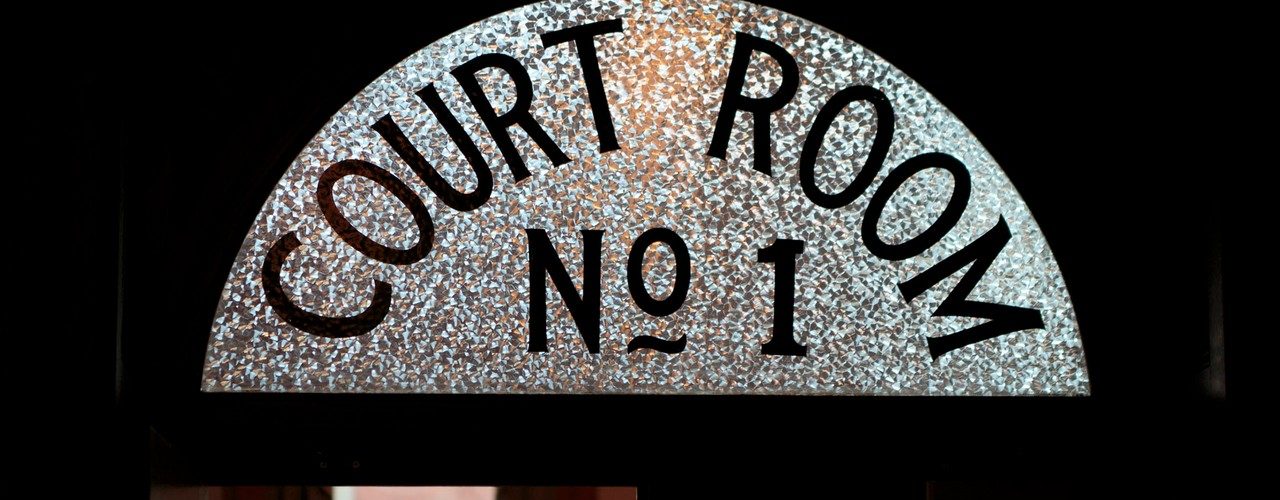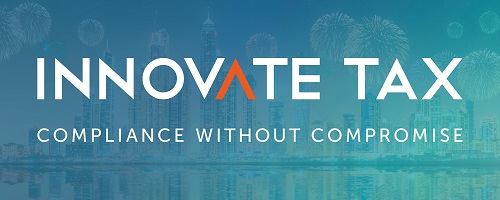On May 3, 2012, the ECJ issued its decision in the case C-520/10 (Lebara).
Context: Taxation — Sixth VAT Directive — Article 2 — Supply of services for consideration — Telecommunications services — Prepaid phonecards displaying information for making international calls — Marketing through a network of distributors
Article in the EU VAT Directive
Article 2 of the Sixth VAT Directive (Article 2 of the EU VAT Directive 2006/112/EC).
Article 2
1. The following transactions shall be subject to VAT:
(a) the supply of goods for consideration within the territory of a Member State by a taxable person acting as such;
(b) the intra-Community acquisition of goods for consideration within the territory of a Member State by:
- (i) a taxable person acting as such, or a non-taxable legal person, where the vendor is a taxable person acting as such who is not eligible for the exemption for small enterprises provided for in Articles 282 to 292 and who is not covered by Articles 33 or 36;
- (ii) in the case of new means of transport, a taxable person, or a non-taxable legal person, whose other acquisitions are not subject to VAT pursuant to Article 3(1), or any other non-taxable person;
- (iii) in the case of products subject to excise duty, where the excise duty on the intra-Community acquisition is chargeable, pursuant to Directive 92/12/EEC, within the territory of the Member State, a taxable person, or a non-taxable legal person, whose other acquisitions are not subject to VAT pursuant to Article 3(1);
(c) the supply of services for consideration within the territory of a Member State by a taxable person acting as such;
(d) the importation of goods.
Facts
- Lebara is a company established in the United Kingdom which provides telecommunications services. At the material time, it marketed phonecards through taxable persons established in a number of other Member States (‘the distributors’), targeting people established in those Member States who wished to make calls to third countries at inexpensive rates.
- The phonecards sold by Lebara displayed, in particular: a brand name; the face value expressed in the currency of the Member State in which the distributor was established; one or more local access numbers to use in order to make a telephone call; and a concealed PIN code. To make a telephone call, it was sufficient to have that information, the PIN included.
- The only use to which the phonecards could be put was the making of telephone calls. Their validity was limited, first, to the face value shown on the card and, secondly, to a fixed period beginning on the date of first use. At the end of that period, any unused call credit was lost.
- To make a phone call to a third country, the user dialled the local access code displayed on the card. The call was picked up on the telecommunications network by a local telecommunications services operator, with whom Lebara had previously entered into an agreement on the provision of one or more dedicated local numbers, and routed to the switch held and operated by Lebara in the United Kingdom. Next, Lebara’s automated system invited the user to enter the PIN number indicated on the card. When the PIN code had been recognised by the automated system, the user dialled the international number which he wished to call. The call was thus routed to its final destination by the international telecommunications service providers with whom Lebara had also previously entered into agreements giving it access to their international telecommunications network.
- Lebara did not sell phonecards directly to consumers, but exclusively through a network of distributors.
- As described in the order for reference, the distributors bought the phonecards from Lebara for an agreed price, lower than the face value of the cards, and then resold the cards under their own name or under a name chosen by them, or even under the Lebara brand. In any event, the distributors were acting in their own name and on their own behalf and not as Lebara’s agents. The phonecards were sold almost exclusively to end users in the Member State of the distributor, either directly by the distributor or by other taxable persons such as wholesalers or retailers established in that Member State acting as intermediaries. Lebara neither knew nor controlled the resale price charged by the distributors or by the other intermediaries.
- The phonecards were activated by Lebara following a request by the distributor, provided that the distributor had paid for them. Even if Lebara did not know the identity of the end user, it had systems in place which enabled it to track the use of each card sold and to ascertain, in particular, whether the card was still valid, the amount of unused credit, the numbers from which calls had been made using the card and the numbers called. No distributor or other person had access to those systems.
- Lebara did not account to the Commissioners for VAT on the sale of phonecards to distributors, on the ground that that transaction was a supply of telecommunications services which took place in the Member State in which the distributor was established and that, in consequence, it was the distributor which had to pay VAT in that Member State in accordance with the reverse charge mechanism. According to Lebara, actual use of the card did not entail the supply by Lebara, for consideration, of services to the end user.
- By contrast, the Commissioners took the view that Lebara had to pay VAT in the United Kingdom because it did in fact supply two services: (i) the ‘issue’, which took place at the time when the card was sold to the distributor and (ii) the ‘redemption’, when the card was actually used by the end user. The Member States are free to tax either the first of those supplies of services, or the second. In the United Kingdom, it is the second which is taxed. The taxable amount is the part of the amount paid by the distributor to Lebara which represents the use actually made of the card by the end user as a proportion of the face value of the card.
Questions
1. Where a taxable person (“Trader A”) sells phonecards representing the right to receive telecommunications services from that person, is Article 2(1) of the Sixth … Directive to be interpreted so as to mean that Trader A makes two supplies for VAT purposes: one at the time of the initial sale of the phonecard by Trader A to another taxable person (“Trader B”) and one at the time of its redemption (i.e. its use by a person — the “End User” — to make telephone calls)?
2. If so, how (consistently with EU VAT legislation) is VAT to be applied through the chain of supply where Trader A sells the phonecard to Trader B, Trader B resells the phonecard in Member State B and it is eventually purchased by the End User in Member State B, and the End User then uses the phonecard to make telephone calls?
AG Opinion
Where a taxable person (‘Trader A’) sells to another taxable person (‘Trader B’) phonecards containing information enabling their buyer (‘End User C’) to access and receive telecommunications services from A to the amount specified on the card (provided that A has received from B the consideration agreed between them) Trader A supplies to end user C a service consisting of a right of access to telecommunications service against prepayment. However, pursuant Article 6(4) of the Sixth Council Directive 77/388/EEC of 17 May 1977 on the harmonisation of the laws of the Member States relating to turnover taxes — Common system of value added tax: uniform basis of assessment, if Trader B takes part in his own name but on behalf of Trader A in the supply of that service to end user C, which is for the national court to ascertain, Trader B shall for VAT purposes be considered as having received that supply of service from Trader A and as having supplied it to End User C.
If the Court chooses not to follow this proposal, or if the national court is unable to find that the distributors act on behalf of Lebara, I suggest in the alternative the following answer to the preliminary questions of the First‑tier Tribunal, Tax Chamber:
Where a taxable person (‘Trader A’) sells to another taxable person (‘Trader B’) phonecards representing the right to receive telecommunications services from Trader A, and Trader B subsequently sells the phonecard to End User C who makes the international telephone calls represented in the phonecard, Trader A makes a single taxable supply of telecommunications services at the time of the sale to Trader B. The subsequent purchase and use of the card by an End User does not represent a further taxable supply by Trader A.
Decision
Point (1) of Article 2 of Sixth Council Directive 77/388/EEC of 17 May 1977 on the harmonisation of the laws of the Member States relating to turnover taxes — Common system of value added tax: uniform basis of assessment, as amended by Council Directive 2003/92/EC of 7 October 2003, must be interpreted as meaning that a telecommunications services operator which offers telecommunications services consisting in selling to a distributor phonecards which display all the information necessary for making international telephone calls by means of the infrastructure provided by that operator and which are resold by the distributor, in its name and on its own behalf, to end users, either directly or through other taxable persons such as wholesalers or retailers, carries out a supply of telecommunications services for consideration to the distributor. On the other hand, that operator does not carry out a second supply of services for consideration, this time to the end user, where that user, having purchased the phonecard, exercises the right to make telephone calls using the information on the card.
Summary
Prepaid calling cards — Sales through distributor network
A telephone service provider which provides telecommunications services consisting in the sale to a distributor of telephone cards containing all the information necessary to make international telephone calls by means of the infrastructure provided by that provider, and which are resold by the distributor, in its own name and on its own behalf, to end users, either directly or through other taxable persons such as wholesalers or retailers, is supplying a telecommunications service for consideration to the distributor. On the other hand, the provider in question does not supply a second service for consideration to the end user where the latter, after purchasing the telephone card, exercises the right to make telephone calls by using the information on that card.
Source:
Similar ECJ cases
How did countries implement the case? Your feedback appreciated! Let us know
Newsletters
Join the Linkedin Group on ECJ VAT Cases, click HERE















